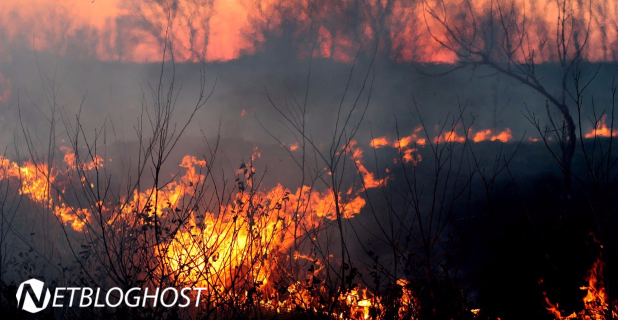The speaker at the conference was telling us about “creation care.” The Bible has some good stuff in it about the subject, he said. But there is also quite a bit of bad stuff. So we have to be careful what we choose for guidance on the subject from the pages of Scripture.
The worst part of the Bible, he informed us, is right at the end, the Book of Revelation. The problem with this book, he said, is that it is apocalyptic literature. Apocalyptic writings are very pessimistic about the world as we know it. They depict an end-of-the-world scenario in which this present creation will be destroyed. We humans may have a future, but it is in another world—one that will replace this one after a cataclysmic finale. To take that kind of scenario seriously is not to put much value on preserving the environment. In short, the speaker pronounced, the Book of Revelation is not very friendly toward such things as plants and animals.
Frankly, I found the whole presentation quite silly. For one thing, I get skeptical when someone tells me that because the Book of Revelation is “apocalyptic” literature it must embody a certain view of reality. It seems to me to make more sense not to decide ahead of time what Revelation’s message can’t be because it is “apocalyptic” literature, but actually to find out what the Book of Revelation does say on a given subject.
And in this case the Book of Revelation does not fit the speaker’s depiction of its view of the final destiny of the non-human creation. Here is an obvious case in point. In Revelation 5, the Seer reports that the elders in heaven sing a hymn to the victorious Lamb, followed by another hymn, this one sung by all the angelic hosts. But then an even larger chorus gives voice:
- Then I heard every creature in heaven and on earth and under the earth and in the sea, and all that is in them, singing,
- ‘To the one seated on the throne and to the Lamb
- be blessing and honour and glory and might
- for ever and ever!’ (Rev. 5:13)
Dolphins and squirrels and hawks singing praises to the Lamb—hardly a universal song of lament to an end-time Destroyer!
I have long been enamored with the image of St. Francis preaching to the birds. I wonder what he said in his homilies to them. If he had been reading Revelation, he might well have told them that a day is coming when all things will be made new—not destroyed, mind you, but made transformed into something wonderfully new. He might have assured them that it does not yet appear what they shall be in this renewed creation, but that it will be so marvelous that they will join in a universal hymn to the one who made that renewal possible.
I’m not personally preparing any sermons to the animals that populate my neighborhood. But the next time I am near a finch or a chipmunk, or when I look into the little pond where our goldfish swim around, I might just tell them to get ready for a better day.
And in the meantime, however we understand “apocalyptic,” we human types ought not to be treating the non-human creation in a manner that will leave us embarrassed in the presence of our fellow choir members when all creatures great and small join in the eternal hymn-sing!






























